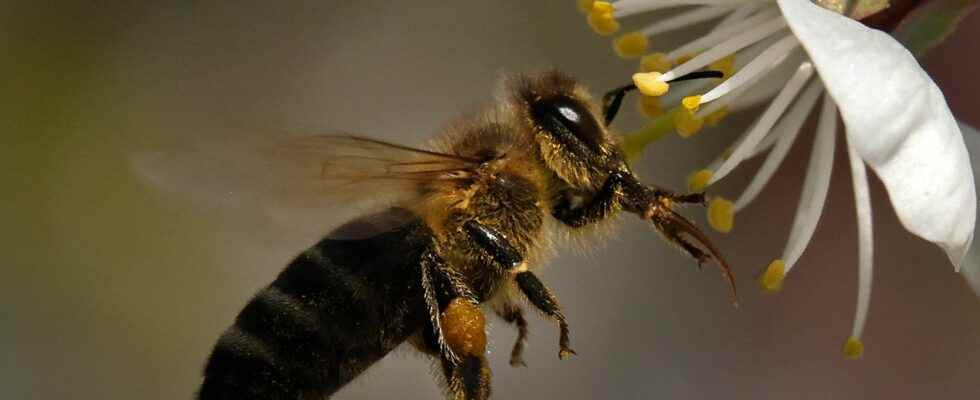Brussels had the last word. The French Minister of Agriculture, Marc Fesneau announced, Monday, January 23, to abandon a derogatory measure authorizing the use of neonicotinoid insecticides to protect sugar beet seeds. The French government capitulates, after the decision of the European justice deeming illegal the derogations for these toxic substances for bees. “I have no intention of strolling farmers and in particular those who are worried,” said the minister during a press briefing in Paris. The government will therefore not propose a “third year of derogation on the coating of beet seeds, it is over for this element, the decision of the Court of Justice (European) is powerful enough not to destabilize even more the system”.
The Court of Justice of the European Union (CJEU) ruled on Thursday 19 January that no derogation concerning seeds treated with neonicotinoids was justified, including in the exceptional circumstances invoked to protect sugar beets.
A massive decline in bee colonies
Neonicotinoids, which attack the nervous system of insects, are implicated in the massive decline of bee colonies. This decision of the CJEU was taken following an action for annulment before the Belgian Administrative Court concerning the derogation granted to Belgium for the use of these insecticides toxic to bees on sugar beets. The demand was brought by the groups of activists Pesticide Action Network (PAN) Europe and Nature & Progrès Belgium as well as a Belgian beekeeper.
Several substances have been banned in the EU since 2018, but a dozen countries have taken derogations to preserve sugar yields, these insecticides making it possible to fight against an aphid vector of beet yellows. According to a recent report by NAP Europe, EU countries have granted more than 236 derogations for banned pesticides in the past four years. Neonicotinoids represent nearly half (47.5%). Anti-pesticide groups have argued that neonicotinoids are increasingly being used preventatively by “seed coating” instead of being sprayed on the crop, meaning they are applied directly to the seed – before insect pests affect the plant. “As a result, the EU decision puts an end to almost half of the derogations granted by member states for banned pesticides,” explains Pesticide Action Network.
A cold shower for planters
By folding in front of Brussels, France is making a 180 degree turn as it prepares to authorize their use in a derogatory manner for the 2023 campaign, after having done the same in 2021 and 2022. A draft decree authorizing this derogation was in public consultation in France, pending the opinion of the neonicotinoid supervisory board – boycotted by an association and an agricultural union which considered the systematic use of these insecticides unjustified. “I agreed with the representatives of the sector that we would put in place a system which would make it possible to cover the risk of losses which would be linked to jaundice while we find the alternatives we need”, specified Marc. Fesneau.
The minister also wants “to activate the safeguard clauses at European level so that there is no distortion of competition”, while France is the leading European sugar producer and the second in the world, behind Russia. France has a total of 23,700 beet growers. As for the agricultural sector, it’s a cold shower. They are formal: no alternative is currently operational to counter infestations of aphids which transmit the jaundice virus to sugar beets. The General Confederation of Beet Growers (CGB) has called for full compensation for “jaundice losses” in a communicated published on January 23.
Pressure from the agricultural sector was therefore not enough. The majority union FNSEA called on the government on Friday not to “brutally” reverse its draft exemption intended to allow beet growers to use neonicotinoid insecticides. “The FNSEA wishes to alert the government and the European Union to the consequences of this decision if it were to be applied brutally”, continued the organization, citing the “endangerment of the sustainability of farms a few weeks before sowing”. and the “questioning of French beet production and the operation of sugar factories”.
On the contrary, environmental associations are delighted with this change of gear. “We welcome this decision and this victory that we win after tough battles, reacts, this Monday, François Veillerette, spokesperson for Future generations on Twitter. The environmental activist adds: “We have been alerting the government for years to this impasse that are these exemptions granted to dangerous products and which are moreover prohibited! We recall on this subject that the exemptions granted in 2021 and 2022 were therefore probably illegal. .”
